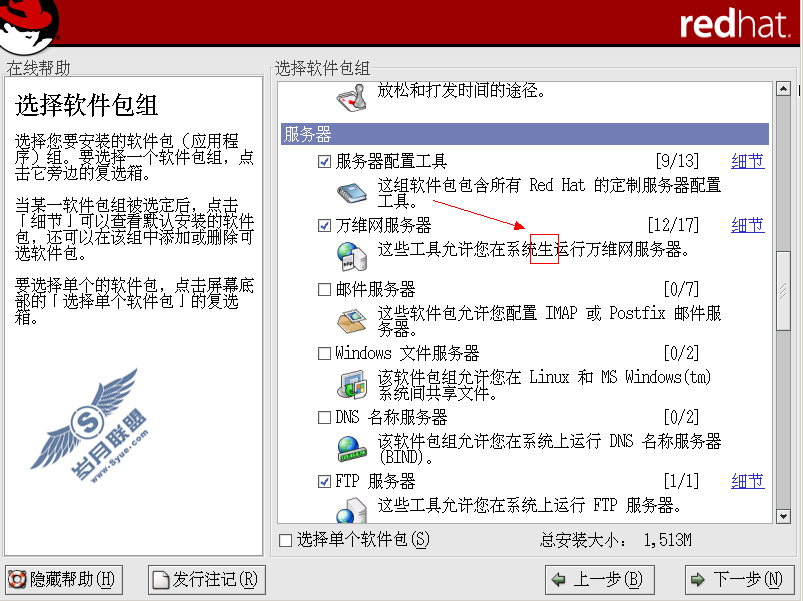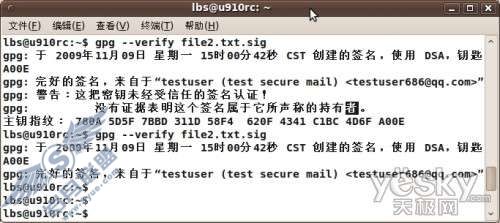内核循环缓冲区数据结构在用户态的使用
忘记了之前是有个什么事情一时想起好像需要用个cycler buffer,手头一时又没有,懒得自己实现。就向同学要了个。后来好像也没有用到,倒是一直记得好像老早以前看到ldd上提到双向链表的时候有提到个kfifo,只是一直没有用到这个,所以一直没看。倒是无聊的时候想起过printk是否用的就是这个数据结构。
昨天临下班的时候想到kfifo这个东东,今天就抽点时间看看。
刚开始是把双向链表拎出来编一下看看,结果让我大吃一惊。居然没有list.h,看来fc从4以后开始倒退倒是有点佐证了。好在机器上还有linux-libc-headers的包,解包覆盖一下应该就ok了吧。不要高兴,还是不行。打开list.h一看,居然里面只包含了另一个文件,只扔给我一个#error,超ft。没办法,只好上内核源码里去拷了,于是把include/*都copy到了/usr/include。再编,靠,居然还是不过。nnd,再看list.h,居然还有个宏定义才能使用里面的inline函数,要不就extern reference了,郁闷。只好在源文件中加了:
#undef CONFIG_DEBUG_LIST
#endif
然后再包含上linux/autoconf.h,这才一切ok。汗......
有了上面的折腾,在开始搞kfifo之前就先看看kfifo.h和他的实现吧。结果一看kfifo.h和kfifo.c,头文件里面extern了好几个kfifo.c里面实现的东东不说,还用了spinlock,看来直接用是没有指望了,还是dirty hack到user space算了。于是只能把文件copy出来dirty hack了。吭哧吭哧搞了一气,搞了个可用的东东开列如下:
kfifo.c:
#include
#include
#include
#include
struct kfifo *kfifo_init(unsigned char *buffer, unsigned int size)
{
struct kfifo *fifo;
fifo = malloc(sizeof(struct kfifo));
if (!fifo)
return (void*)(-ENOMEM);
fifo->buffer = buffer;
fifo->size = size;
fifo->in = fifo->out = 0;
return fifo;
}
struct kfifo *kfifo_alloc(unsigned int size)
{
unsigned char *buffer;
struct kfifo *ret;
if (size & (size - 1)) {
fprintf(stderr,"size > 0x80000000/n");
size = roundup_pow_of_two(size);
}
buffer = malloc(size);
if (!buffer)
return (void *)(-ENOMEM);
ret = kfifo_init(buffer, size);
if ((unsigned long)ret<=0)
{
free(buffer);
}
return ret;
}
void kfifo_free(struct kfifo *fifo)
{
free(fifo->buffer);
free(fifo);
}
unsigned int __kfifo_put(struct kfifo *fifo, unsigned char *buffer, unsigned int len)
{
unsigned int l;
len = min(len, fifo->size - fifo->in + fifo->out);
l = min(len, fifo->size - (fifo->in & (fifo->size - 1)));
memcpy(fifo->buffer + (fifo->in & (fifo->size - 1)), buffer, l);
memcpy(fifo->buffer, buffer + l, len - l);
fifo->in += len;
return len;
}
unsigned int __kfifo_get(struct kfifo *fifo,
unsigned char *buffer, unsigned int len)
{
unsigned int l;
len = min(len, fifo->in - fifo->out);
l = min(len, fifo->size - (fifo->out & (fifo->size - 1)));
memcpy(buffer, fifo->buffer + (fifo->out & (fifo->size - 1)), l);
fifo->out += len;
return len;
}
kfifo.h:
#ifndef _LINUX_KFIFO_H
#define _LINUX_KFIFO_H
#define __u32 unsigned long
#define __u64 unsigned long long
#define min(x,y) ({ /
typeof(x) _x = (x); /
typeof(y) _y = (y); /
(void) (&_x == &_y); /
_x < _y ? _x : _y; })
#define max(x,y) ({ /
typeof(x) _x = (x); /
typeof(y) _y = (y); /
(void) (&_x == &_y); /
_x > _y ? _x : _y; })
static inline int fls(int x)
{
int r;
__asm__("bsrl %1,%0/n/t"
"jnz 1f/n/t"
"movl $-1,%0/n"
"1:" : "=r" (r) : "rm" (x));
return r+1;
}
static inline int fls64(__u64 x)
{
__u32 h = x >> 32;
if (h)
return fls(h) + 32;
return fls(x);
}
static inline unsigned fls_long(unsigned long l)
{
if (sizeof(l) == 4)
return fls(l);
return fls64(l);
}
static inline unsigned long roundup_pow_of_two(unsigned long x)
{
return 1UL << fls_long(x - 1);
}
struct kfifo {
unsigned char *buffer; /* the buffer holding the data */
unsigned int size; /* the size of the allocated buffer */
unsigned int in; /* data is added at offset (in % size) */
unsigned int out; /* data is extracted from off. (out % size) */
};
struct kfifo *kfifo_init(unsigned char *buffer, unsigned int size);
struct kfifo *kfifo_alloc(unsigned int size);
void kfifo_free(struct kfifo *fifo);
unsigned int __kfifo_put(struct kfifo *fifo, unsigned char *buffer, unsigned int len);
unsigned int __kfifo_get(struct kfifo *fifo, unsigned char *buffer, unsigned int len);
static inline void __kfifo_reset(struct kfifo *fifo)
{
fifo->in = fifo->out = 0;
}
static inline void kfifo_reset(struct kfifo *fifo)
{
__kfifo_reset(fifo);
}
static inline unsigned int kfifo_put(struct kfifo *fifo,
unsigned char *buffer, unsigned int len)
{
unsigned int ret;
ret = __kfifo_put(fifo, buffer, len);
return ret;
}
static inline unsigned int kfifo_get(struct kfifo *fifo,
unsigned char *buffer, unsigned int len)
{
unsigned int ret;
ret = __kfifo_get(fifo, buffer, len);
if (fifo->in == fifo->out)
fifo->in = fifo->out = 0;
return ret;
}
static inline unsigned int __kfifo_len(struct kfifo *fifo)
{
return fifo->in - fifo->out;
}
static inline unsigned int kfifo_len(struct kfifo *fifo)
{
unsigned int ret;
ret = __kfifo_len(fifo);
return ret;
}
#endif
用起来还是不错的,初步测试了一下效果还行,在去掉了spinlock的保护之后还揣测了一段时间是不是把spinlock改成sem用来sync,不过看到代码的实现又觉得这个spinlock不是对fifo的index进行保护的,也就是说这个实现是免锁的。在kernel中的代码也不过是在smp的情况下加了mb而已。
贴一下测试的代码如下:
#define FIFO_LENGTH 4096struct ll_param
{
struct kfifo * fifo;
int msg_len;
};
static struct ll_param fifo;
void thread_reader(void * param)
{
int read_len=0;
unsigned int counter=0;
unsigned char buffer[FIFO_LENGTH]={0};
struct ll_param * p=(struct ll_param *)param;
for(;;)
{
bzero(buffer,FIFO_LENGTH);
read_len=kfifo_get(p->fifo,buffer,FIFO_LENGTH);
if(read_len!=0)
{
printf("Read len:%d,buffer is:%s/n",read_len,buffer);
}
else
{
counter++;
}
if(counter>20)
{
break;
}
usleep(50000);
}
}
void thread_writer(void * param)
{
unsigned int write_len=0;
unsigned int counter=0;
unsigned char buffer[32]={0};
struct ll_param * p=(struct ll_param *)param;
for(counter=0;counter<1000;counter++)
{
bzero(buffer,32);
sprintf((char *)buffer,"This is %d message./n",counter);
write_len=kfifo_put(p->fifo,buffer,strlen((char *)buffer));
usleep(100);
}
}
int main(void)
{
pthread_t pidr;
pthread_t pidw;
fifo.msg_len=10;
fifo.fifo=kfifo_alloc(FIFO_LENGTH);
pthread_create(&pidw,NULL,(void *)thread_writer,&fifo);
pthread_create(&pidr,NULL,(void *)thread_reader,&fifo);
pthread_join(pidr,NULL);
pthread_join(pidw,NULL);
kfifo_free(fifo.fifo);
printf("/nGoodbye!/n");
return 0;
}
要说明的是,初步测了一下,似乎reader中用来get的buffer大小对受writer和reader之间不一致的速率的影响较大。比如如果reader里面定义的buffer长度设置为小于fifo长度,在writer和reader个子usleep不同时间时表现会不同。以后再慢慢找吧(boss刚刚来电话又要搞个恶心的任务。所以心情大坏)。
先这样。

